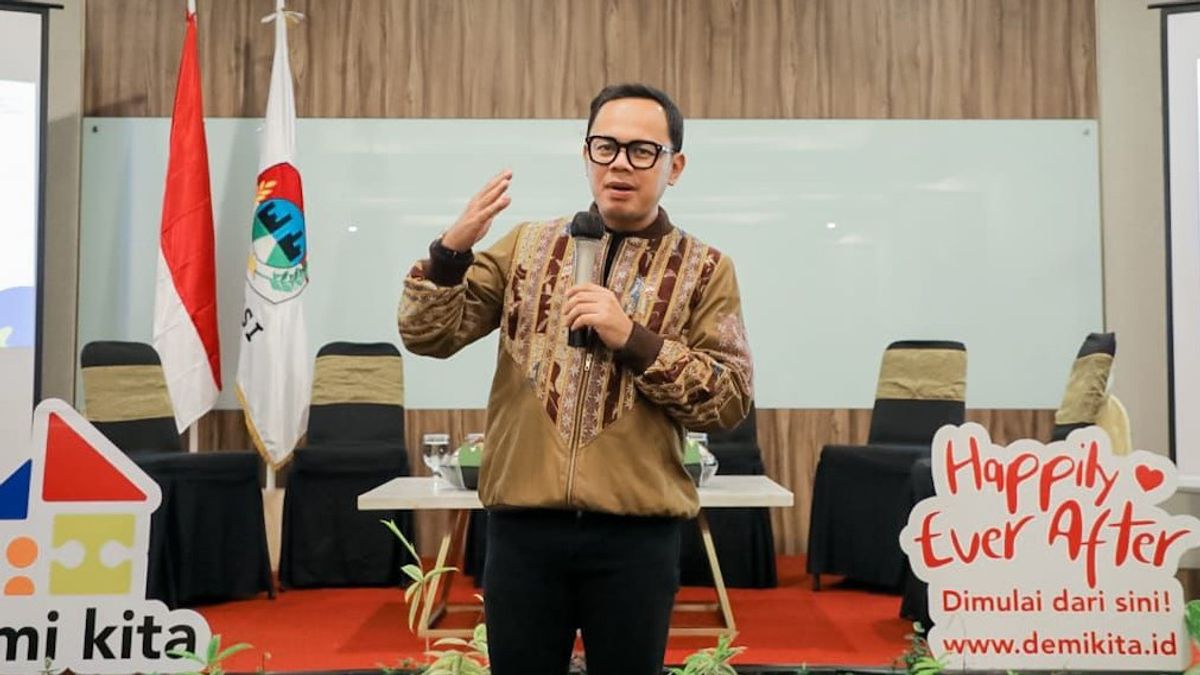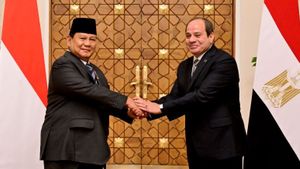JAKARTA - A total of 9 cities in Indonesia have become a model for a family-friendly city. It is hoped that in the future each region must also focus on the main reference in making policies based on the family
This was said by the Chairman of the Board of Management of the Association of Indonesian City Governments (APEKSI), Bima Arya when he was the main resource person in family-friendly city training in the Kota Kita Ramah Keluarga program initiated by APEKSI in collaboration with Demi Kita in Bogor, Tuesday, January 24.
He said, the collaboration between APEKSI and Demi Kita, which is the first start-up in Indonesia, which focuses on strategic issues, this family is carried out by signing an MoU to run the Kota Kita Ramah Keluarga program.
There are also 9 pilot cities that participate in supporting family-friendly cities, namely Bogor, Metro, South Tangerang, Pekalongan, Depok, Banjarmasin, Makassar, Ternate and Palu.
Chairman of the APEKSI Board of Management, Bima Arya, said that Indonesia is currently at the crossroads between good news, optimism and worrying things. For this reason, each region must also focus on the main reference in making policies based on the family.
"Indonesia Gold 2045 will only happen if we have a long term vision and integrated approach on family conception, family issues are expected to be the main issue in our efforts towards a prosperous city and city residents," Bima said in his statement, Wednesday, January 25.
From data from the National Population and Family Planning Agency (BKKBN) which has updated data from early 2022 until the end of 2022, the number of families in Indonesia increased by 2.27 million people or to be precise 2,271,917 families so that the number of families becomes 70,759,056 families from the previous 68,487,139 families.
From this data, there is 61 percent of the family of the mother and child, the remaining 40 percent are single parents, do not yet have children, husband and wife are elderly or the elderly only.
For families with under five in Indonesia totaling 14 million, there are 32 million families and 16 million families with the elderly and most of the family head education is still relatively low.
Demi Kita President Director, Dinar Pandansari said, this pentahelix collaboration is an effort to build a positive environment at the city level by raising the mayors' concern for family issues. Many problems started and could be resolved from the family.
"The data talks a lot and if this is allowed us to continue to be rich, it's like sitting on a time bomb, because the numbers but we don't do anything, it's the same, so we have to move. Like a tit for tat with APEKSI to support together with the ministry. institutions that feel the same excitement," he said.
Dinar continued that the strategic indicator of the success of the government program ended up being the family.
"For example, for example, indicators of maternal mortality due to childbirth, indicators of early marriage, indicators of divorce rate, and so on. The task of each development program organizer is to ensure that the program can affect these indicators. So every input that enters, comes out is an impact that can be felt by the benefits of the family in Indonesia," he said.
This is very relevant to APEKSI's mission to accommodate all the concerns and problems of its members.
"Yes, as Bima Arya often conveys that APEKSI is not only focused on state building, but also nation building at the city level. This means that city development must be visionary and far away for future progress, not only limited to governance at the city level, such as infrastructure development, smart cities as well as strengthening systems and bureaucratic reform," he said.
In addition, APEKSI is also concerned by strengthening national character at the city level to inclusive cities with disabilities and minorities, disaster-resilient cities, cities that practice the values of Pancasila, including family-friendly cities.
The English, Chinese, Japanese, Arabic, and French versions are automatically generated by the AI. So there may still be inaccuracies in translating, please always see Indonesian as our main language. (system supported by DigitalSiber.id)













